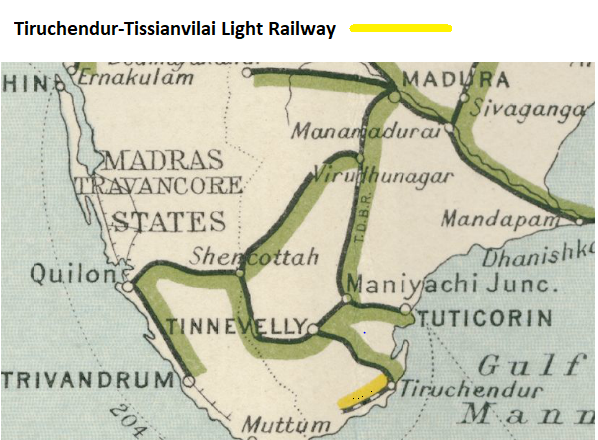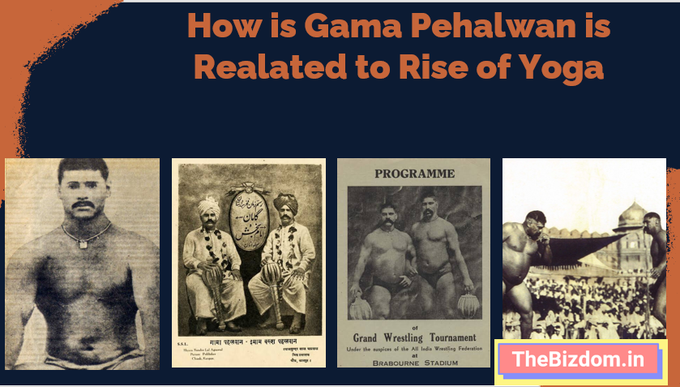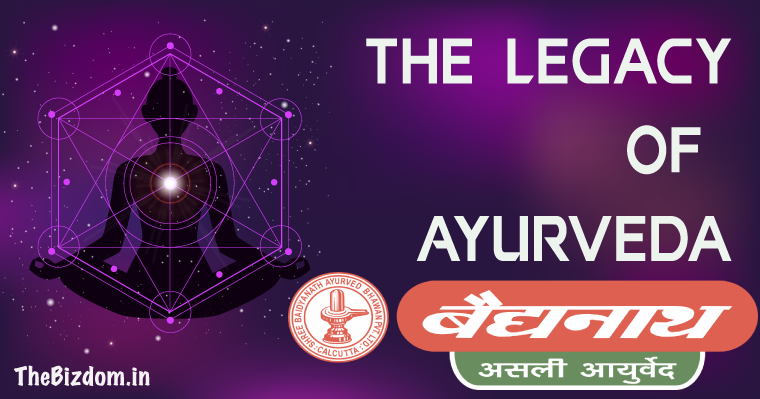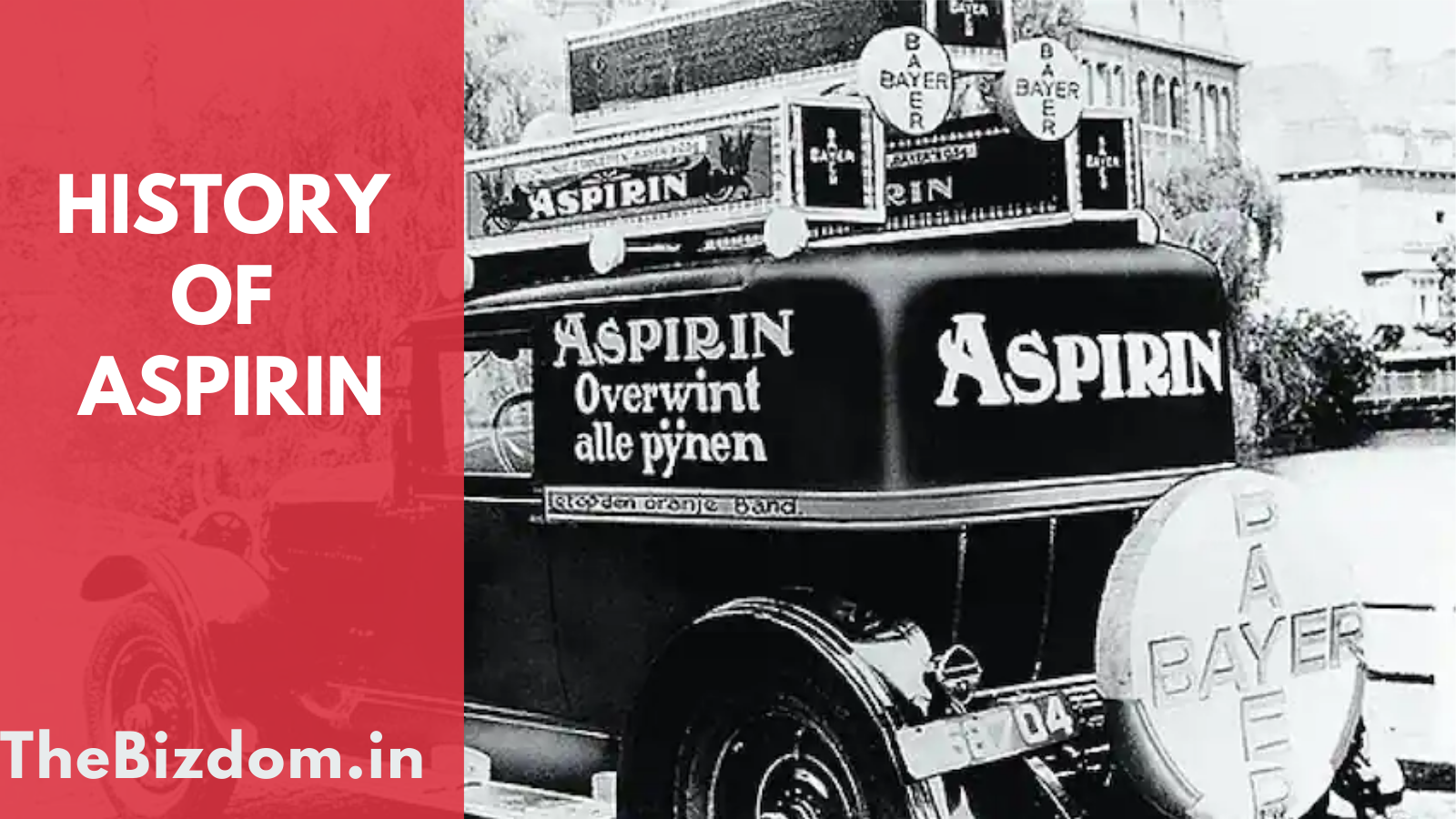6 min to read
Mr. Parry of Parry's Cornerwale
Thomas Parry goes the honour of founding the first industrial factory (on record) in Madras.
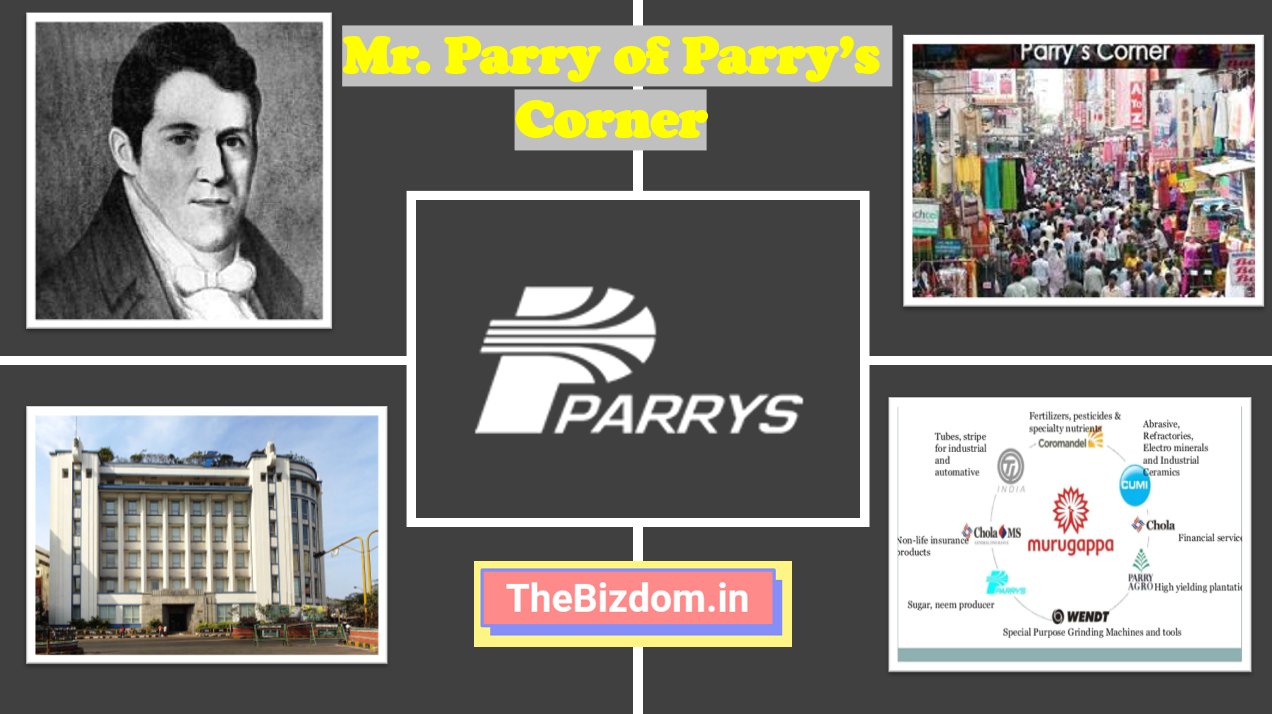
Parrys as a surname was due to the fact that he belonged to a family that used to once rule, Powys (in Wales). The flat fertile land there was ideal for farming, which ensured his family richness.
Thomas Parry
The Welshman Thomas Parry arrived in Madras in 1788 as a free merchant. While most other Englishmen involved in the Trading in those time were either Writer or Cadet of EIC. Been a Free agent, gave give freedom, but also some problems. Madras had grown from Fort St George, and had Portuguese, French, Dutch, Jews also doing the Trading.
Soon, he felt that he needed some local support, so in 1789 he took Chase (an ex Civil servant of EIC) as a partner, and they started as real estate agents. They then sold lottery tickets, discounted Navy bills, sold passages in Europe-bound ships and also distributed books.
He then formed a partnership with a Madras merchant, whose main business was banking and marine insurance. During the first two years of the business, he amassed what he himself called a ‘snug little fortune’. In 1805, he established a tannery in San Thomé near his castle, and this gradually grew into an establishment employing 300 men and exporting its products – boots and army leather-goods-to the rest of the Engish World.
However the outbreak of the Napoleonic wars in 1793 which lasted until 1815 conspired against his luck as more and more British ships were lost to the French who had a formidable base in Mauritus. He was bankrupt and took up a salaried job as captain of treasury under the Nawab of Carnatik. This is where he also got involved into Carnatic debt scandal (1809). It was believed that some of the bonds issued by the late Nawab of Carnatic to his creditors were forged.
Mr. Dare
By 1819, Mr. John Dare became his partner and they started expanding into other business. First was coffee plantations in Wayanadm followed by sugar and spirits. Though Mr. Parry died in 1824, but business was growing quite well under Mr. Dare.
The Sugar+
By 1897-The East India Distilleries and Sugar Factories Limited (EID) was formed in London. Today’s Chennai has a landmark named after both of them- junction, where the business got started, is Parry’s Corner. Dare House, the HQ at Parry’s Corner, was built in the late 1930s.
The ‘Manure’ residual of their Sugar business gave them the idea of getting into fertilizers business in 1906. And then in the next decade, they were asked by South Indian Railway(SIR) to run their own private Rail line-Kulasekharapatnam Tissianvillai Light Railway.
The railway business got them into ‘New Maladabar Timber Yards and Saw Mills Ltd’ at Kallai near Calicut. The timber being obtained from the surrounding hills and was used for making, railway sleepers, and planks.
As they were expanding into other Farm inputs, they need more of Sulphuric acid which was used in the production of these fertilisers. As sulphuric acid was needed to make bone super and sulphur phosphate, so they set up a plant to manufacture sulphuric acid as well as, in time, nitric acid, hydrochloric acid etc.
Acid needed jars for it to be stored and, so, in 1908 they established another company ‘The Pottery’, to make a variety of jars, all thrown by hand by potters trained on its premises.
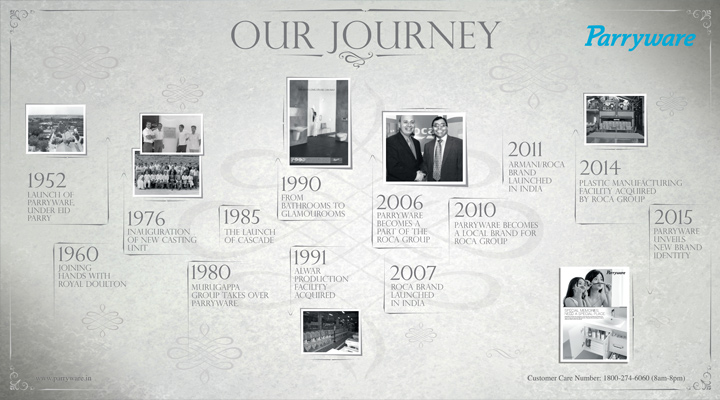
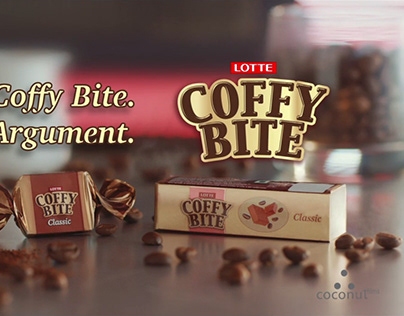
Change of Hands
British Firms were not interested in putting more capital for their growth and while there were many Suiter, somehow the asking price was not matching. And business was on a deathbed by 1980. R Venkataraman the then Finance minister, tried to be a matchmaker for this Iconic firm.
Commonwealth Development Finance Corporation and Pearl General Insurance, two London based organizations decided to sell their stake to Murugappa group (belong to the Chettiar community which is famed for their entrepreneurship).
Murugappas
The Murugappa group was founded in 1900, when Dewan Bahadur AM Murugappa Chettiar established a money-lending and banking business in Burma (now Myanmar), which then spread to Malaysia, Sri Lanka, Indonesia and Vietnam. The Murugappa family acquired 20,000 acres of land in Burma over a period of time and the founder (1884–1949) became a wealthy and prominent citizen of the country. Their community (Nagarathars Chettiar) were the primary providers of capital to Burmese cultivators through much of the colonial period.
The collapse of paddy prices in the Great Depression, coupled with the Nagarathars’ insistence on land as collateral, transferred a substantial part of Burma’s cultivatable land into their hands. Discontent against them ran high. Finally, the community was expelled from there during World War II. Link.
After the anti-Indian riots in Burma, A.M.M. Murugappa Chettiar, decided to be back to their roots. Murugappa Chettiar felt that the bicycle had a future in India and after very quick and amicable negotiations with Tube Investments Ltd., UK (makers of the famous BSA brand of cycles)—then the world’s largest manufacturers of bicycles—the TI Cycles of India factory was established in 1949 itself at Ambattur, near Madras. This was the beginning and the TI Group later renamed the Murugappa Group.
In the 1950s, they set up Carborundum Universal, which was into abrasives and refractories and then, later on, electro-minerals. Over the years, the group kept adding companies like Shanthi Gears, Wendt India and got into metal forming and twisting business.
Their agri-business was built through acquisition of EID Parry and Coromandel International, originally started by the US-based Chevron Corporation. Some of the group’s acquisitions in the agri-business were earliest examples of hostile takeovers in Indian corporate history.
Today
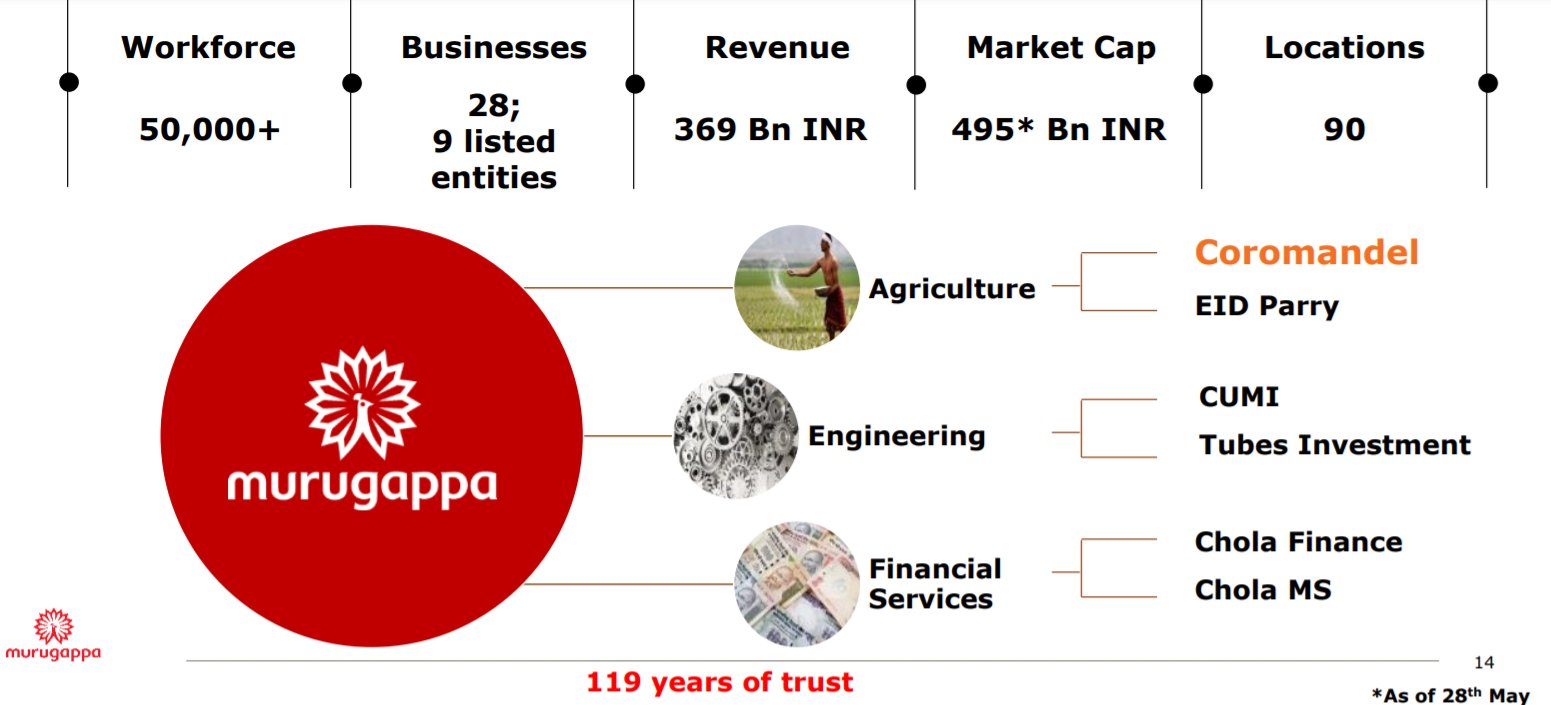
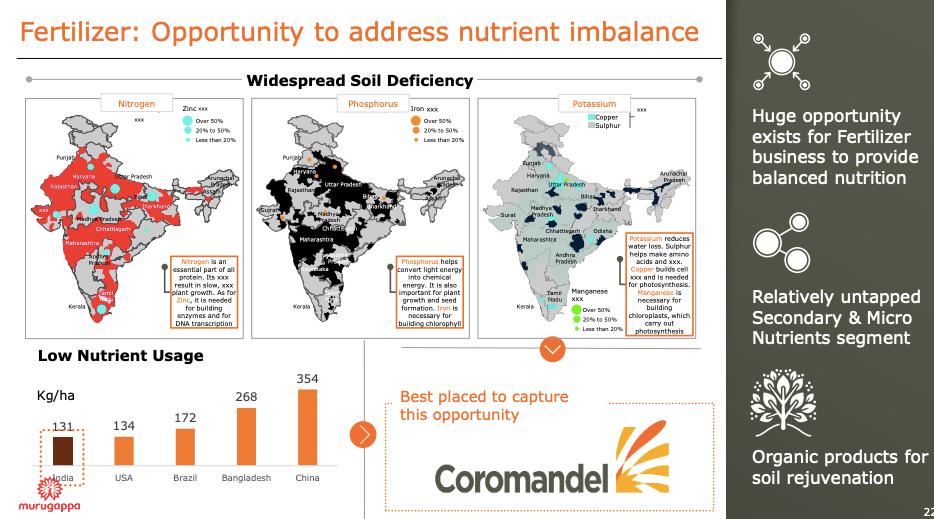 Their fertilizers business is under Coromandel International. It is the India’s Second largest Phosphatic fertilizer player(~constituting ~22% of the domestic capacity) and largest NPK player in India.
It produced ~4.5 million tons of fertilizer in FY20. It Clocked revenue of Rs. 142 billion Cr. in FY21, with ~4500 employees & ~7500 contract staff.
Their fertilizers business is under Coromandel International. It is the India’s Second largest Phosphatic fertilizer player(~constituting ~22% of the domestic capacity) and largest NPK player in India.
It produced ~4.5 million tons of fertilizer in FY20. It Clocked revenue of Rs. 142 billion Cr. in FY21, with ~4500 employees & ~7500 contract staff.
